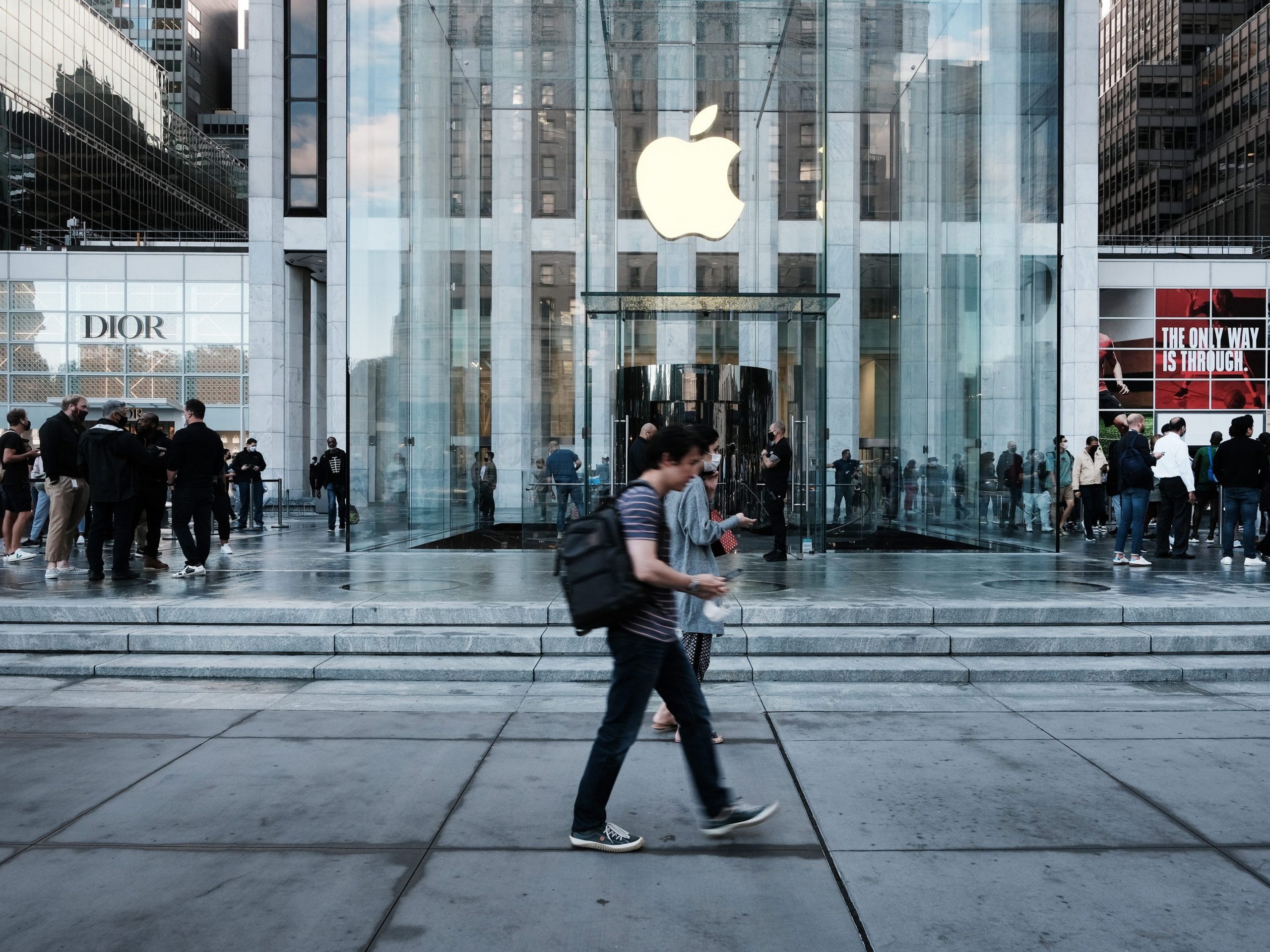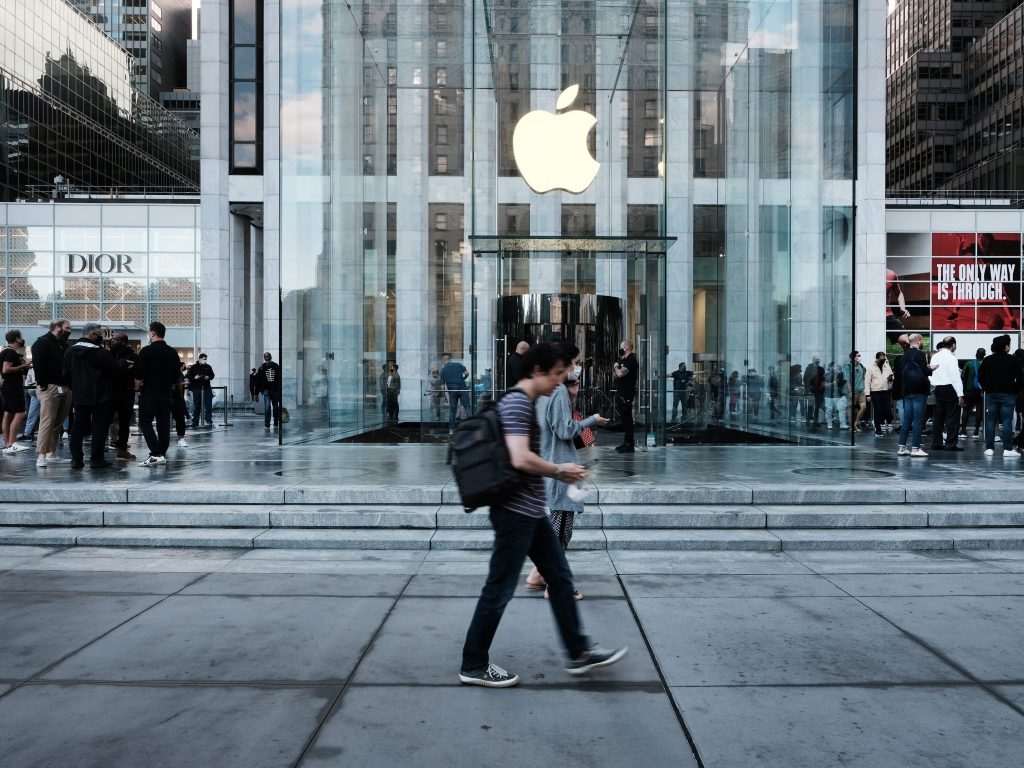
Spencer Platt/Getty Images
- Apple CEO Tim Cook says the global chip shortage continues to affect "most of our products," Reuters reported.
- Supply chain issues had already cost Apple $6 billion in sales in the quarter ending Sept. 25.
- Apple reported $83.4 billion in sales for the quarter, up almost 30% from a year ago but still below expectations.
Tech giant Apple has become the latest to be hit by the supply chain crisis, as its production struggles to catch up with demand.
It could get worse ahead of the holiday season even as the company is expecting a strong quarter ending December.
"We're projecting very solid demand growth year over year. But we are also predicting that we're going to be short of demand by larger than $6 billion," CEO Tim Cook told Reuters.
Apple CEO Tim Cook said on a conference call with analysts that supply chain issues had already cost Apple $6 billion in sales in the company's fiscal fourth-quarter ending Sept. 25. The company posted $83.4 billion in sales for the quarter, up almost 30% from a year ago – but still falling short of the $84.8 billion analysts had expected.
The quarter saw "larger than expected supply constraints" and manufacturing disruptions in Southeast Asia due to the pandemic. While the situation has improved in these plants, the global chip shortage continues to affect "most of our products," he said.
"We're doing everything we can do to get more (chips) and also everything we can do operationally to make sure we're moving just as fast as possible," he told Reuters.
Apple's results have been boosted this fiscal year by robust demand for electronics on the back of the work-from-home trend, but the chip shortage has taken its toll with fourth-quarter iPhone sales below forecast at $38.9 billion. Analysts had expected sales to hit $41.5 billion.
Cook said in the call Apple buys primarily chips made with newer technology, but still uses those made with older technology. "On legacy nodes, we compete with many different companies for supply and it's difficult to forecast when those things will balance," he said, according to a transcript.
Industries around the world are facing an acute chip shortage that has, in turn, hit global supply chains across consumer electronics, tech, and auto. It's expected to cost companies hundreds of billions of dollars this year, and experts say it could persist for another two years.
Apple shares are up 18% year-to-date but are now down about 4% in after-hours trade.
